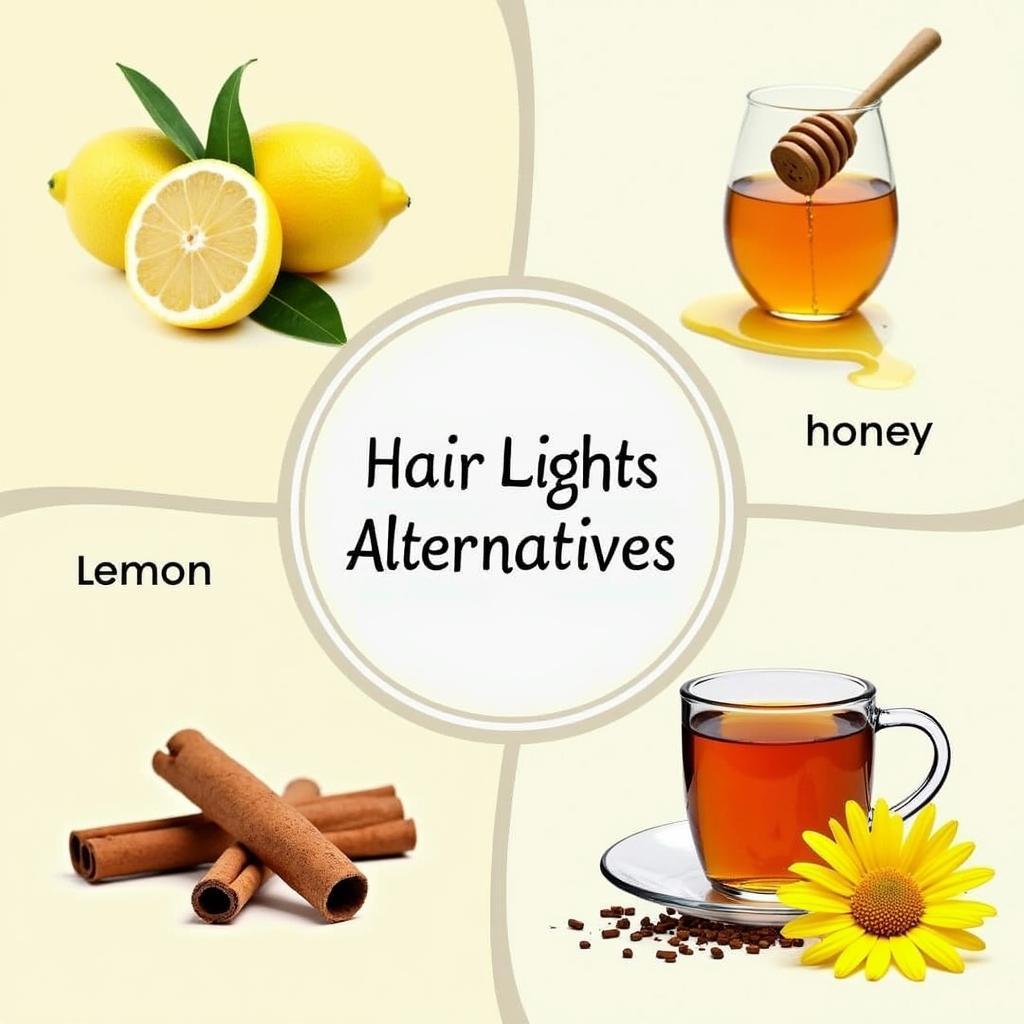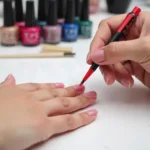
Is Hydrogen Peroxide Bad for Hair? A Comprehensive Guide
- AmazoniaSilva
- Tháng 1 26, 2025
- Zodiac signs
- 0 Comments
Hydrogen peroxide is a common household chemical often used for cleaning and disinfecting. But did you know it’s also a key ingredient in many hair lightening products? This raises the question: is hydrogen peroxide actually bad for your hair? The answer, like most things related to hair care, isn’t a simple yes or no. Let’s dive into the science and explore the potential benefits and drawbacks of using hydrogen peroxide on your hair.
Understanding Hydrogen Peroxide and its Effects on Hair
Hydrogen peroxide (H2O2) is a chemical compound that acts as an oxidizing agent. When applied to hair, it breaks down melanin, the pigment responsible for your hair color. This process lightens the hair, resulting in a bleached effect. The higher the concentration of hydrogen peroxide, the more melanin is broken down, and the lighter your hair becomes.
The Science Behind Hair Lightening
The lightening process involves a chemical reaction where hydrogen peroxide penetrates the hair shaft and oxidizes the melanin molecules. This oxidation process breaks down the melanin into smaller, colorless compounds, resulting in lighter hair. However, this process can also affect the structural integrity of the hair.
Potential Benefits of Using Hydrogen Peroxide
While often viewed negatively, hydrogen peroxide can offer certain benefits when used correctly and in appropriate concentrations:
- Lightening Hair: This is the most common use, allowing for gradual or dramatic lightening depending on the concentration and application method.
- Removing Build-up: Hydrogen peroxide can help remove product build-up and mineral deposits, leaving hair feeling cleaner.
- Treating Scalp Conditions: Diluted hydrogen peroxide can help treat dandruff and other scalp conditions due to its antiseptic properties.
Potential Drawbacks and Risks of Using Hydrogen Peroxide
The potential downsides of using hydrogen peroxide on your hair can be significant, especially with frequent or improper use:
- Dryness and Brittleness: Hydrogen peroxide can strip the hair of its natural oils, leading to dryness, brittleness, and breakage.
- Hair Damage: Overuse or high concentrations can damage the hair cuticle, the protective outer layer, making it more susceptible to further damage.
- Scalp Irritation: Hydrogen peroxide can irritate the scalp, causing redness, itching, and even burns in sensitive individuals.
- Uneven Color: Improper application can lead to uneven lightening, resulting in a patchy or brassy appearance.
- Hair Loss: In extreme cases, prolonged exposure to high concentrations of hydrogen peroxide can cause hair loss.
How to Minimize the Risks When Using Hydrogen Peroxide
If you choose to use hydrogen peroxide on your hair, follow these precautions to minimize the risks:
- Start with a Low Concentration: Begin with a lower concentration (3%) and gradually increase if needed, always monitoring your hair’s condition.
- Perform a Strand Test: Before applying to your entire head, test on a small, hidden strand to assess the lightening effect and potential damage.
- Dilute with Water: Diluting hydrogen peroxide with water can reduce its potency and minimize the risk of damage.
- Deep Condition Regularly: Replenish moisture lost due to hydrogen peroxide by using deep conditioning treatments.
- Limit Frequency of Use: Avoid using hydrogen peroxide too frequently to allow your hair time to recover.
Alternatives to Hydrogen Peroxide for Hair Lightening
Several safer alternatives to hydrogen peroxide exist for lightening hair, including:
- Lemon Juice: A natural lightening agent that works gradually in sunlight.
- Honey and Cinnamon: A natural mixture that can lighten hair gently.
- Chamomile Tea: A mild lightening agent that can add subtle highlights.
- Commercial Hair Lighteners: Many hair lightening products contain gentler ingredients than hydrogen peroxide.
 Natural Hair Lightening Alternatives
Natural Hair Lightening Alternatives
“Using hydrogen peroxide effectively relies on understanding its potential for both benefit and harm. Start low, go slow, and prioritize hair health.” – Dr. Amelia Reed, Certified Trichologist
“Damage from hydrogen peroxide can be cumulative. Regular deep conditioning is essential to maintaining healthy hair.” – Sarah Chen, Licensed Cosmetologist
In conclusion, while hydrogen peroxide can effectively lighten hair, it’s crucial to be aware of the potential risks. Using it improperly or too frequently can lead to dryness, damage, and even hair loss. By following the precautions outlined above and considering gentler alternatives, you can make informed decisions about using hydrogen peroxide on your hair. Is Hydrogen Peroxide Bad For Hair? It can be if not used responsibly.
FAQ
- Can I use hydrogen peroxide on colored hair?
- How often can I safely use hydrogen peroxide on my hair?
- How can I reverse the damage caused by hydrogen peroxide?
- What should I do if I experience scalp irritation from hydrogen peroxide?
- Is it safe to use hydrogen peroxide on damaged hair?
- What are the signs of over-processed hair from hydrogen peroxide?
- Can I mix hydrogen peroxide with other hair products?
For further assistance, please contact us at [email protected] or visit our office at Fifth Avenue, 34th Floor, New York, NY 10118, USA. We have a 24/7 customer service team available to help. You can also explore more articles on hair care and other zodiac-related content on our website.

